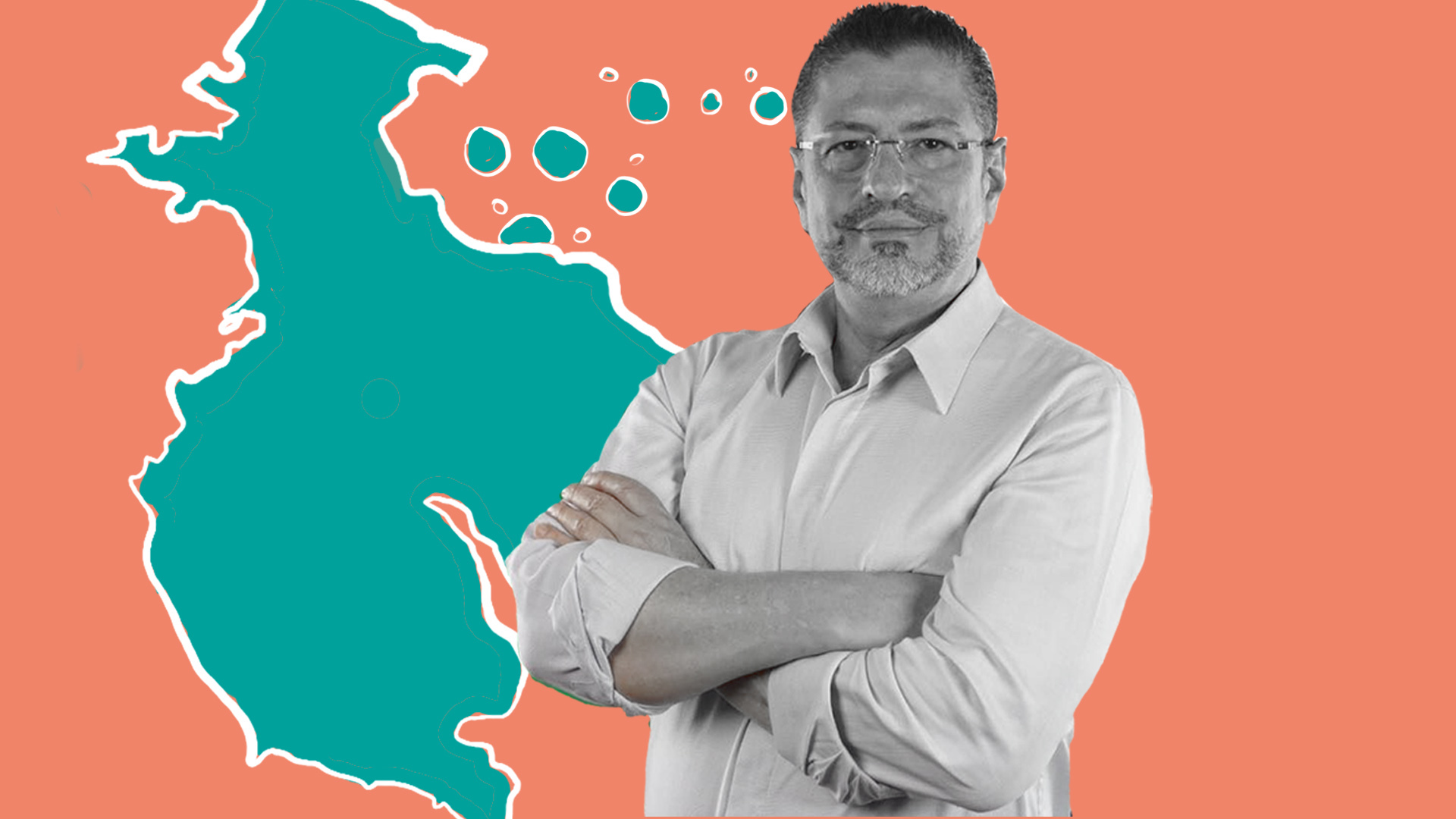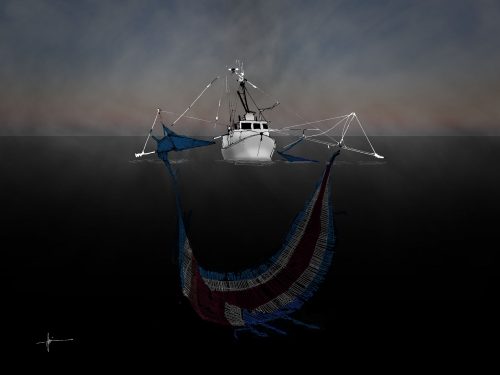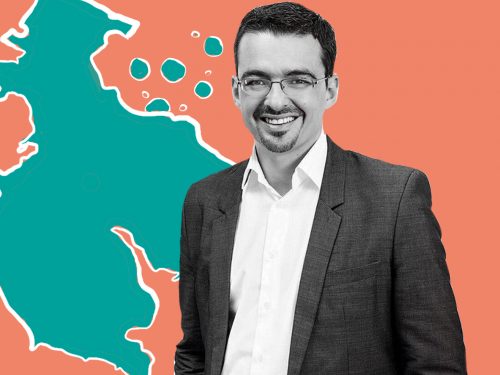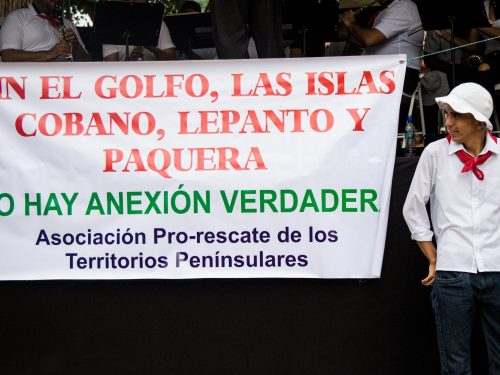
Rodrigo Chaves assumed command of the Ministry of Finance during the administration of President Carlos Alvarado (2018-2022) for only 184 days, during the first months of the COVID-19 health crisis. His short time in this position was surrounded by controversies such as giving statements contradictory to those of the president and proposing bills that challenged other public institutions.
Since his departure from the Ministry of Finance at the end of May 2020, he indicated that he began looking for a political party to “support” during the next elections. So in the first half of 2021, he joined the Social Democratic Progress Party (PSD for the Spanish acronym) and ended up being their presidential candidate.
Chaves’ name also made national news for being involved in an investigation that concluded that he was involved in sexual misconduct against two young female employees in his former position at the World Bank, where he worked in different positions of power.
Regarding the case, the current candidate affirmed that after that accusation, he “absolutely changed his behavior.” However, he continues to deny the accusations.
My conscience tells me that my (the) Latino culture, which is much friendlier toward jokes, was subjectively interpreted as inappropriate,” the candidate told The Voice of Guanacaste.
He currently ranks fifth among the candidates that people intend to vote for, according to the latest opinion poll conducted by the Center for Research and Political Studies (CIEP-UCR for the Spanish acronym).
In this interview, Chaves talks about his plans for Guanacaste, including the creation of a commercial dry corridor in the north of the province and the creation of more scientific high schools. This interview was edited to improve readability.
Guanacaste is one of the provinces with one of the highest rates of gender violence, not only talking about domestic violence, but also sexual and patrimonial violence. What actions or laws will you promote to reduce these figures?
We have a very serious problem of enforcement and effective repression of these heinous crimes. We have cultural issues that they tell me are a little more intense in Guanacaste. It’s a particularly serious problem of domestic violence. There’s an issue of machismo, there are issues of unacceptable cultural practices and there is also the economic dependence of women that doesn’t allow them to exercise their freedom from their agency because they don’t have their own income and jobs. We have to focus social aid much more on those households headed by women with female headship and make sure the law is enforced. Change cultural patterns and see what’s happening in the courts that aren’t punishing those who commit these offenses.
You were involved in an investigation into inappropriate conduct against young women. Can you ensure that women in your work environment will be safe and won’t suffer from the same conduct?
Look, I was involved. The accusations were of sexual harassment. There was a long investigation where they said that there was no sexual harassment but that I had become very familiar [with the victims]; I became close friends with young female colleagues, including the two who filed the complaint against me and that for an executive at the level that I was, that was not correct and well, yes, it’s true. I’m very frank. And there what my conscience tells me is that my (the) Latino culture, which is much friendlier toward jokes, was subjectively interpreted as inappropriate.
But can you ensure that the women who work in your office will be in safe places by your side?
Of course. That happened 14 years ago, when we didn’t have the awareness that the MeToo movement gave us. In other words, they were always in safe places. That was what the investigative agencies determined because there were no violations of those spaces.
Guanacaste has a very close relationship with Nicaragua due to its border. In what way does your government intend to position itself in light of the socio-political situation in the neighboring country?
That is a historical scam. It’s a dictatorship that disguises itself as Marxist and that handed over the country to very large private economic groups. I’m not from the right, but this conspiracy that exists in Nicaragua is very painful. My philosophy on foreign policy is very simple: Costa Rica has neither enemies nor friends. We aren’t going to interfere. The issue that affects us is the issue of economic immigration. We need a certain type of workforce, so let those who come to this country do so legally, without preference over Costa Ricans, and let them pay the services and taxes that all residents of this country pay.
You talk about legalization for immigrant workers, but at this moment, the immigration legalization processes take months, if not years. What would you do to facilitate the procedures so that these people can work legally?
The objective is to brutally make all public procedures electronic, to the point that we aren’t going to need a physical office, nor physical trips nor papers. At first, the procedures of the Immigration and Foreign Affairs Department are absurd for Costa Ricans, for foreigners. I believe that part of the system’s design is precisely to obstruct things so that some people benefit from coyotes, the paper pushers. It’s part of the big problem of public administration.
What specific plans do you think your administration has to create more jobs specifically for Guanacaste?
Well, what needs to be done in Guanacaste is to create a virtuous circle. That there be growth in the region so that companies hire Guanacastecans. A lot has to be invested in public infrastructure, finishing the roads that are under construction. Establish much higher access to the Internet and improve access to quality university education in the science, technology, engineering, mathematics and bilingual systems.
Develop the other areas that aren’t being developed in tourism because the investment has been focused on the Gulf of Papagayo, when there are hundreds of beautiful, more traditional things to do in Guanacaste. The entire province of Guanacaste would become a tourist corridor that increases the number of days that tourists come and the money spent per tourist. But that requires infrastructure.That requires strategic planning.
And where would the financing come from for this type of project?
These budgets have to come from two parts. Our proposal is to allocate 2 percentage points of the Gross Domestic Product (GDP), which is about $1.2 billion within the budget, to take it from things that don’t generate profitability for the population and allocate it to infrastructure works.
What “things” would state funding be taken away from?
We have to remove the expense of interest, of luxury pensions, the tax exemptions that privileged groups of power receive simply because they have been friends with the last eight governments. We have to remove some specific tax destinations, such as taxes on alcohol and cigarettes that the Rural Development Institute (INDER) receives and that it isn’t spending well.
My star project is to bring $14 billion for a commercial dry channel that connects the northern part of the country, including the north Pacific with the north of our Atlantic, and that we build a network of logistics and high value-added services in this zone. There we could talk about thousands of jobs, 80,000 jobs, 100,000 jobs.
But that corridor would pass through the protected areas and biological corridors that exist in northern Guanacaste, such as those of the Guanacaste Conservation Area (ACG). Is that so?
Yes, but I believe very much in conservation, in protecting the environment. Of course, we have to do impact studies [in the ACG], but also [studies of] what the social impact would be. It seems to me that there is no fundamental contradiction and that there are techniques to not harm the environment and to be able to take advantage of the investments. Those who argue that there is a fundamental contradiction between environmental protection and economic development are speaking of a false dichotomy based more on ideology than on technical expertise.
And do you have any strategy in your government plans to bring more stable capital similar to those of the Greater Metropolitan Area?
Of course. What I’m most interested in bringing to Guanacaste, apart from agricultural technology, is credit. Better credit conditions and more access so that farmers can produce things with greater added value and bring the economy of the 21st century, of the fourth industrial revolution, to Guanacaste. So the boys and girls from Guanacaste who are studying today to be engineers don’t have to come to the Greater Metropolitan Area (GMA). [For there to be more free trade zones] of high-tech products, tooth crowns, sophisticated medical devices, medical products. Programming and software sales.
So, how would your government administration combat the educational gap experienced by primary and secondary students, especially those who live in rural areas of Guanacaste?
We have two problems in Guanacaste to address in education. One, which is chronic, is the constant deterioration in the quality of education in the last 30 years. [Strategies] such as removing those bureaucratic administrative burdens from teachers, make sure that the Ministry of Public Education (MEP for the Spanish acronym) can measure the quality of educational materials, in other words, that teachers and educators also do it.
Now the educational shutdown. This year, there will be little ones entering fifth and sixth grade who don’t know how to read or write. The boys and girls have to be identified, give them specialized, intensive tutoring, apart from connecting them with devices and the Internet. Unfortunately, tell them “we’re not going to let you guys pass until you’ve acquired the necessary knowledge learning skills.” Because letting someone pass a grade is giving them a mortgage for the future, because it won’t be able to come up.
What projects do you have then to diversify the students’ educational courses and promote another type of education, as you mentioned?
We have to give incentives for scientific high schools, convince universities, especially public ones, that although it’s true that it’s very nice to be an anthropologist or sociologist, these careers don’t have the level of personal and social profitability that the students and the country require. What do we gain by educating a 17-year-old so that she graduates in a profession for which there is no demand and she ends up driving for Uber or working in a commercial establishment with a degree?
On the other hand, there are going to be Guanacastecans who aren’t going to have the financial or other capacity to graduate from a university, but whose technical skills can be improved through a dual education from high school, where they can go do internships and gain experience, for example, in the tourism sector.
You talk about internet access in the province. How would you improve the conditions that Guanacaste has right now?
We need to understand two things: one, that the administration of that fund of $700 million must be changed, taken away from the Telecommunications Superintendence (SUTEL for the Spanish acronym), which is currently controlled by the Public Services Regulatory Authority (ARESEP for the Spanish acronym), so that the government can take responsibility, but also control, of the investment programs that today the government can’t do anything about. Second, we have to use the funds, but we know that the technology that has been developing in the world would allow us to bring very high-speed Internet to the farthest corners of Guanacaste, simply with satellite coverage, as countries are doing, like Chile and the United States in Alaska.
Bagaces continues to face problems with its water. Do you think that the actions of recent government administrations have been sufficient to handle this problem? What would you do differently?
No. We must allow the importation of modern agrochemicals, which, in and of themselves, are cheaper and more friendly to the environment, to replace those poisons. Understand the problem well. Understand and eliminate them immediately. Eliminate glyphosate without punishing farmers, better understand the water issue and invest in water treatment.
Since the last decade, the traditional miners of Abangares have had to transition to other gold extraction techniques due to the danger posed by mercury. What plans could you suggest for this to finally happen?
Look, the issue of Abangares, the issue of the Osa Peninsula, of the workers there and of the other parts is a lack of clarity of public policies. In this country, we still don’t know or we don’t have a roadmap to see if traditional mining is what we’re going to strengthen, if we’re going to help them or not. Also the conflict with the cooperatives and the conflict with the companies that could make large investments. And the only thing people do is [say] “fix it yourselves.” The monument to the incompetence of the government administrations is Crucitas, but in Abangares there are smaller monuments, just as shameful, about what the government is doing with the workers.







Comments